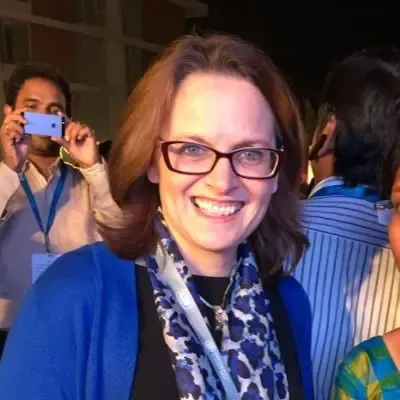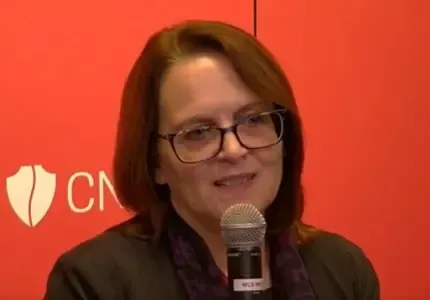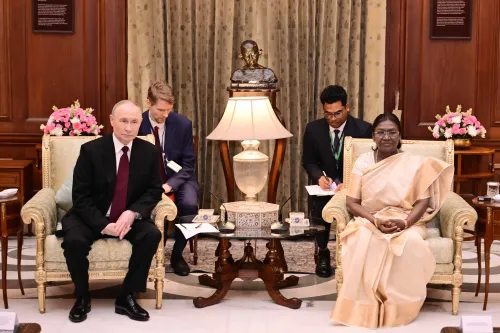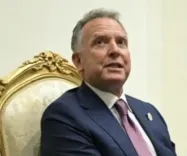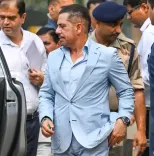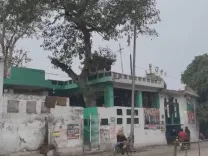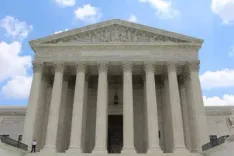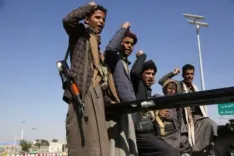Why is PM Modi visiting Namibia for the first time?
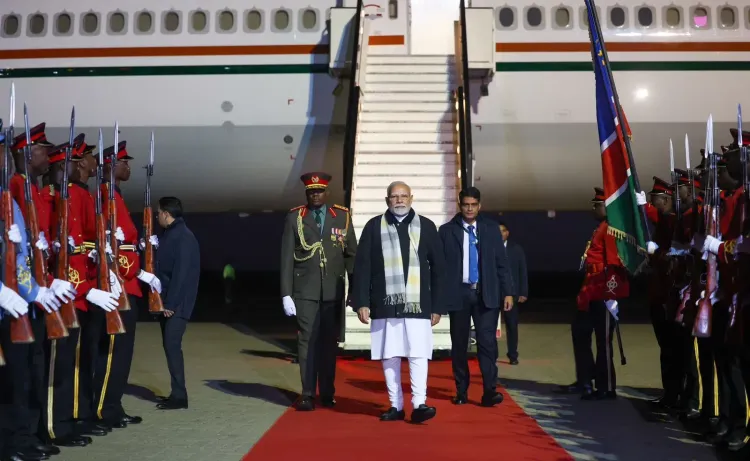
Synopsis
Key Takeaways
- PM Modi's visit signifies a deepening of India-Namibia relations.
- Focus on collaboration in energy and healthcare.
- Historical ties date back to Namibia's struggle for independence.
- India has been a crucial partner in Namibia's development.
- Joint discussions to enhance bilateral cooperation.
Windhoek, July 9 (NationPress) Prime Minister Narendra Modi has arrived in Windhoek, the capital of Namibia, on Wednesday, marking his inaugural official visit to this southern African country.
He was welcomed at the airport by Ms. Selma Ashipala-Musavyi, Namibia’s Minister of International Relations and Cooperation. This visit highlights India's dedication to enhancing its historical and amicable relationship with Namibia.
Following his arrival, PM Modi shared a post on X, stating:
"Just landed in Windhoek. Namibia is a cherished and reliable African partner, and we are eager to strengthen our bilateral cooperation. Anticipating my meeting with President Dr. Netumbo Nandi-Ndaitwah and addressing the Namibian Parliament today," he noted.
During this visit, Prime Minister Modi is set to engage in discussions with President Netumbo Ndemupelila Nandi-Ndaitwah and will also present a speech at a Joint Session of the Namibian Parliament.
The two leaders are likely to cover a broad spectrum of bilateral topics, concentrating on enhancing collaboration in sectors such as energy, healthcare, digital infrastructure, education, and capacity building.
An official release emphasized the profound connections between the two nations, rooted in Namibia's quest for independence. India was one of the pioneering nations to advocate for Namibian independence at the United Nations in 1946 and provided support to SWAPO, the liberation movement that ultimately secured Namibia's freedom. In 1986, the first SWAPO embassy abroad was established in New Delhi.
India also contributed significantly during Namibia’s journey towards independence. Lt. Gen. Dewan Prem Chand of the Indian Army commanded the UN peacekeeping force (UNTAG) that facilitated the electoral process during 1989–90. Diplomatic relations were formalized after independence, with India opening its High Commission in Windhoek in 1990, followed by Namibia establishing its Mission in New Delhi in 1994.
India’s development collaboration with Namibia encompasses substantial humanitarian and infrastructure support. This includes the donation of COVID-19 vaccines, food aid during droughts, and assistance in establishing educational and healthcare institutions. The India-Namibia Centre of Excellence in IT at NUST and the India Wing at the University of Namibia’s Ongwediwa campus serve as testaments to this lasting partnership.


